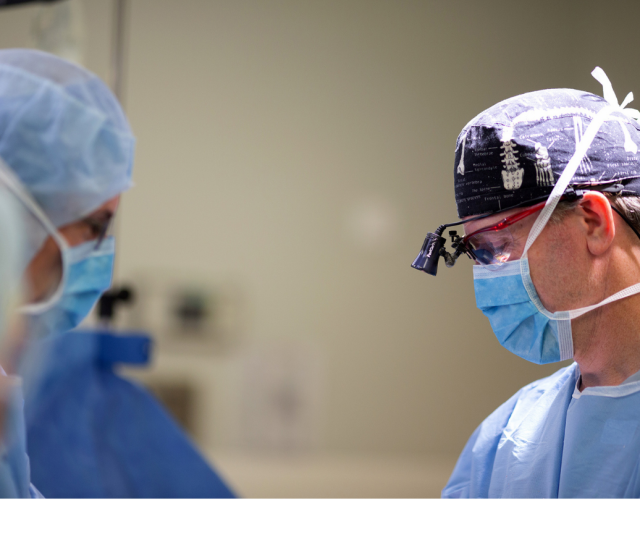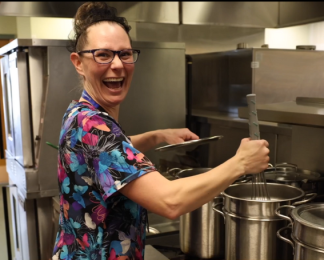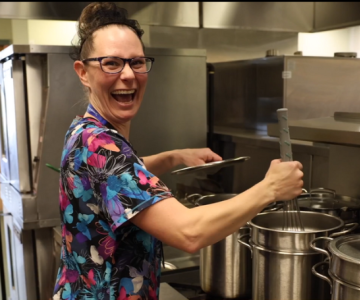Surgery wait times for elective surgeries
For information about wait times for elective surgeries in B.C., visit the Government’s Surgery Wait Times website.
Access information you need before, during and after your surgery, including contact numbers, an overview of the process and recovery tips.

For information about wait times for elective surgeries in B.C., visit the Government’s Surgery Wait Times website.
Please call the hospital where your surgery will take place or booking office (expand the “Hospital contact information” accordion below for phone numbers) if:
Please note: If there’s a change in your health or you no longer wish to have surgery, please contact your surgeon as soon as possible.
When going in for your surgery, be sure to plan ahead for your stay. Learn about:
Be sure to arrive at your check-in time even if it’s a few hours before your scheduled surgery. This time may be required by the hospital staff to prepare you for the operating room.
The anesthetic used will depend on the type of surgery. Most surgeries will involve either a local, spinal or general anesthetic.
Anaesthetic drugs may stay in the body for up to 24 hours and you will be impaired during this period. Do not:
You will be moved from the operating room to the recovery room after your surgery. You may have an oxygen mask and various devices monitoring your vital signs while you’re in recovery; a nurse will also be close by to monitor your vitals as the anesthetic wears off. You may also be given pain medications while in recovery. You can expect to spend a few hours in the recovery room, though the stay time does vary.
Your home is usually the best place to recover as people tend to eat, sleep and heal better at home. During your hospital stay, the role of the health-care team is to get you moving and resuming your daily activities safely and as soon as possible so you can return home to recover in a familiar environment. Your health-care team will provide discharge instructions and go over everything you need to know when you leave the hospital.
If you need additional services such as rehabilitation or home care, this will be arranged before you go home. You may be given a prescription that your support person can fill at a pharmacy.
Your primary care provider will receive reports from the surgeon so they can provide appropriate ongoing care.
Please ask any other questions you have, share your concerns, or explain any needs.
Consider the following points before heading home after a surgery:
If you’re unsure how to answer any of these questions, talk with your health-care team to see what resources are available to you.
Resting
Surgery can take a lot out of you and your body will need time to recover. You’ll want to get a good amount of sleep every night and may need to take small breaks to rest or nap throughout the day. However, it’s important to note that resting all day is likely not the best way to help your body recover. Listen closely to your surgeon and/or nursing staff when they explain what level of activity is best for you while recovering at home.
Taking medication
It’s important that you take your medication as instructed. Please ensure you take the pain medication you’ve been prescribed, even if you’re not in pain. Waiting for the pain to return before you take your medication can lead to unnecessary pain and stress.


Those with dementia need special consideration during the holidays. Read our tips and advice to make the holidays enjoyable for everyone.
/stories/supporting-loved-one-dementia-during-holidays


Loreen’s ability to keep calm under pressure, paired with her caring nature, have been integral to her success and to the quality of care that she provides.
/stories/we-are-ih-experienced-nurse-always-steps-when-needed


Many people like to do the Dry January challenge, but going dry isn't for everyone. Gain tips on reducing your alcohol consumption in the New Year and beyond..
/stories/thinking-going-dry-january-going-damp-great-option-too


As we come to the close of 2024 we pause to reflect on the year and celebrate our achievements. Watch our short video of this year’s highlights across IH.
/stories/looking-back-and-celebrating-2024


All's well that ends well: For Kelowna health unit aide JQ, this simple phrase is more than advice—it’s a way of life.
/stories/we-are-ih-health-unit-aide-brings-positivity-every-day


The winter and holiday season can bring joy, but can also bring stresses and challenges. Explore these 10 tips for supporting for mental and physical health.
/stories/10-healthy-habits-winter-and-holiday-season
Receive news and alert posts, and Stories@IH blog posts, right to your inbox!
